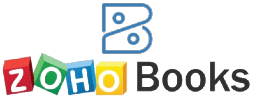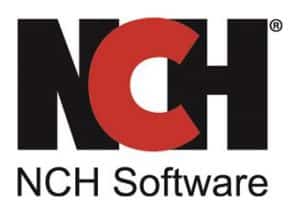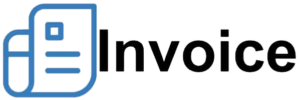The best free accounting software should deliver maximum value to users at no additional cost. At the very least, it must allow users to manage key functions like tracking receivables, payables, and cash flow within its free tier. Advanced features, such as detailed reporting or bank reconciliation, are excellent additions but aren’t absolutely essential for a free offering.
- Wave: Best overall free accounting software
- Zoho Books: Best for free accounting software that can be scaled easily
- Baselane: Best free rental-specific accounting software for independent landlords
- GnuCash: Best open-source accounting software
- NCH Express Accounts: Best free desktop accounting software
- Zoho Invoice: Best free software for managing invoices
Quick comparison of the best free accounting for small business
Retailers need accounting software that tracks their cost of goods sold (COGS), which the free software on our list won’t do. We highly recommend any business with significant inventory to subscribe to QuickBooks Online Plus or Advanced for high-quality inventory accounting in easy-to-use software. QuickBooks Online tops our list of the best retail accounting software.
Wave Starter: Best overall free accounting software

Pros
- Has an affordable paid plan if you outgrow the free version
- Is easy to set up and use
- Lets you easily create and track vendor bills and customer invoices
- Offers payroll and bookkeeping assistance for a fee
- Lets you automate late payment reminders
Cons
- Requires the paid plan to connect your bank accounts
- Can only add one user in the free version
- Lacks advanced features, like project tracking and inventory management
Scalability & plan upgrades |
In addition to unlimited users, the Pro plan offers unlimited bank connections and free receipt scanning – which is an $8 add-on for the Starter plan. |
Add-ons pricing |
|
Discount | N/A |
Free trial | N/A |
Customer support channels | Chat bot, self-help information |
Average user review rating | 4.38 out of 5. Check our Wave user reviews. |
I recommend Wave Starter as one of the best free accounting software options for small businesses. It lets you send unlimited invoices, track income and expenses, and manage bills — all for free, with no size limitations. While it doesn’t support automatic bank and credit card connections, you can still import transactions from your monthly statements.
If you need more, Wave Pro ($16/month) adds unlimited receipt scanning. The free plan works well for small businesses with a single user, making it a solid choice for solo entrepreneurs. If you need multiple users but don’t want to upgrade to Pro, NCH Express is another great option — it’s a free accounting software for small businesses and remains free for companies with up to five employees.
Standout features
The free features that we like the most are the following:
- Managing unpaid bills: A/P is Wave’s strongest feature. It makes it easy for users to track bills, purchases, and vendors. You can also enter unpaid bills and expenses and then track them until paid.
- Invoicing: Despite being free, Wave is good at invoicing. You can customize invoices in different ways, such as choosing from various templates, including your logo, and adding a personalized message.
- Mobile app for invoicing and payment processing: While not as robust as those in pricier apps like QuickBooks Online, Wave’s mobile app allows you to create and send invoices and accept payments on the go.
- Simplicity: Wave has a simple and user-friendly interface that is easy to navigate, even for beginners. You can master using all of its features in less than a week.
Use cases
- Freelancers on a budget: Wave Free is good for one user only, and it is perfect for freelancers who don’t want to commit to paid subscriptions. Even though it’s free, Wave offers a double-entry accounting system and imposes no annual revenue limits like Zoho Books Free.
- Access to payroll assistance: Users can take advantage of Wave Payroll, which includes pay calculations, automatic direct deposits, W-2 and 1099-NEC reporting, and new hire reporting. Check out our review of Wave Payroll to know more about this service.
In my experience, Wave is one of the best free accounting software for small business, offering strong value and reporting features. The free plan is ideal for freelancers, as it’s limited to one user, but the range of reports is impressive. Beyond standard financial statements, you can generate sales by customer, expenses by vendor, and aging reports, making it a great free accounting software for small businesses that need detailed insights.
However, there are some drawbacks. Wave requires a DIY setup, which can impact usability, and its project accounting features are limited — it doesn’t allow tracking income and expenses by project. While that may not be a deal-breaker, bank reconciliation isn’t always smooth if there are timing differences between your books and bank statements. In comparison, Zoho Books provides better bank reconciliation, even on its free plan, making it a strong alternative that small business owners rely on.
Zoho Books: Best for scalability
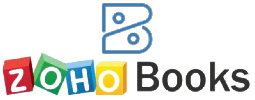
Pros
- Offers competitive features even in the free plan
- Lets you reconcile bank accounts even when checks are outstanding
- Features a robust mobile app
- Easily upgrade to very powerful accounting software suitable for nearly any small business
Cons
- Free plan restricted to companies with less than $50,000 in annual revenue
- Allows only one user with the Free plan
- Doesn’t prominently display the $50,000 revenue limit in the Free plan.
Scalability & plan upgrades | Zoho Books is scalable and very flexible. We highly recommend it if you want to start free and stay with one accounting software provider as your business grows.
|
Add-ons pricing |
|
Discount | ✕ |
Free trial | 14 days for paid plans |
Customer support channels | Email, phone, chat, and self-help information |
Average user review rating | 4.4 out of 5. Read our Zoho Books user reviews. |
I recommend Zoho Books as one of the best free accounting software for small business owners. What sets it apart is the seamless upgrade path — as your business grows, you can move to one of its five paid tiers without dealing with a complicated software conversion.
Beyond that, Zoho Books offers excellent customer support and an intuitive mobile app. The mobile functionality makes managing finances on the go much easier, making it a top choice among free accounting software for small businesses looking for flexibility and scalability.
However, I was disappointed to find that Zoho Books does not prominently display the $50,000 annual revenue limit in the Free plan description. Instead, I had to dig into the FAQs to find this crucial detail. This feels misleading, as such important information should be clearly stated in the main pricing section rather than tucked away in the FAQ.
Standout features
Here are the free features that you’ll get from Zoho Books’ free plan:
- Invoice customization: Zoho Books’ invoice customization feature is commendable. Users can manipulate the look and feel of the invoices — you can add a logo, change the template, colors, and font styles, and add a personalized message after the invoice.
- Mobile app: Zoho Books’ mobile app is the best among all the programs we’ve reviewed. It lets you do regular tasks like sending invoices, entering bills, and receiving payments. Users can also view reports, track time, and categorize bank feed expenses on the mobile app.
- Zoho integrations: The free version can be integrated with other Zoho apps, including Zoho CRM, Zoho People, Zoho Expense, and Zoho Inventory.
Use cases
- Businesses looking for an outstanding mobile app: If you’re looking for accounting software with a powerful mobile app, Zoho Books is a great choice. Its mobile app handles all the essential accounting tasks, like sending invoices, entering bills, and recording billable time, making it incredibly convenient for managing your finances on the go.
- Freelancers or small businesses with less than $50,000 annual revenues: Businesses or freelancers that earn less than $50,000 a year can enjoy Zoho Books’ free version. This version contains all essential features suitable for freelancers’ accounting needs at no additional cost.
I found Zoho Books to be strong in its banking and A/R features. The free plan allows you to connect bank accounts, upload bank statements, and handle bank reconciliations efficiently. On the A/R side, it includes all the essential invoicing tools, though it lacks custom fields. Considering it’s a free accounting software, I think that’s a reasonable trade-off.
However, the free plan has its limitations in integrations and A/P. Features like bill creation and recurring billing are reserved for higher-tier plans. The integrations are also somewhat restricted, though they might still meet the needs of some users.
If neither Zoho Books Free nor Wave Starter fits your requirements, I’d recommend exploring their paid plans for access to more advanced features. For those searching for a free accounting software for small business, upgrading might be the best way to unlock more functionality.
Baselane: Best rental-specific accounting software for independent landlords

Pros
- Has responsive customer service via phone, email, and live chat
- Offers its free software to landlords and tenants
- Is easy to use; has an intuitive dashboard
- Enables tenants to enroll bank accounts and cards for automatic rent payments
- Has a tenant portal
Cons
- Is not a full bookkeeping system
- Has no mobile app
- Doesn’t offer accountants access
Scalability & plan upgrades | Baselane is a free, user-friendly platform designed for tech-savvy landlords managing multiple properties. While it doesn’t offer paid plans with premium features, it frequently adds new tools for financial analysis and plans to expand into property management capabilities. As your portfolio grows, you may eventually need a more comprehensive real estate management program. For scalable options, take a look at our list of the best real estate accounting software. |
Add-ons pricing | ✕ |
Discount | ✕ |
Free trial | ✕ |
Customer support channels | Live chat, scheduled callback |
Average user review rating | 3.9 out of 5. Read our Baselane user reviews. |
We selected Baselane as the best free accounting software for rental property management because it’s a free solution tailored for independent landlords and real estate investors. It simplifies rent collection and financial management while offering strong bookkeeping tools to track income and expenses, making tax preparation easier. Additionally, its online bank account pays interest and provides cash-back rewards on purchases, adding extra value for users.
Unlike other free accounting software for small business options like Zoho Books and Wave, Baselane doesn’t have a mobile app. It also supports only one user, and there is no upgrade option for multiple users. If you need multi-user access, we recommend Wave, which offers unlimited seats for just $16 per month.
Standout features
Here are a few of Baselane’s notable standout features:
- Bookkeeping software to streamline finances: Baselane automates your bookkeeping and reporting, so you can keep track of all of your finances in one place and track both real-time cash flow and performance.
- Income and expense tracking: With Baselane’s bookkeeping software, you can automatically tag transactions and categorize them by property and Schedule E category.
- Tax package: Baselane’s tax package is a report that can be shared with an accountant or anyone who needs access to your financials. Included reports are Net Operating Cash Flow and a transaction ledger.
- Free checking account: Baselane’s free checking account has features built for landlords, such as the ability to track multiple properties. It also allows you to earn up to 5% cash back debit rewards. To learn more, read our Baselane Business Checking review.
- Tenant screening: Baselane’s tenant background checks include credit reports, criminal history, and evictions.
- Rent collection: Baselane facilitates an easy rent collection feature that allows bank and credit card payments. It also allows Auto Pay where tenants can enroll their bank accounts for an automatic debit arrangement.
- Client management: Tenants have a dedicated portal where they can track rent payments. This portal serves as the main records database for current and past payments for both the landlord and tenant.
Use cases
- Independent landlords managing multiple properties: Baselane offers a free, easy-to-use platform that simplifies tasks like online rent collection, banking, and accounting, helping landlords save time.
- Financial analysis in property management: Baselane provides features to analyze property performance, offering valuable insights for better decision-making.
- Landlords preparing for property management growth: While Baselane focuses on financial management now, its planned expansion into property management features makes it a promising option for future needs.
Baselane is not evaluated in this rubric because it is not a double-entry accounting software. However, I included it here because it is a good pick for landlords looking for software to track income and expenses to be reported on Schedule E. If you also need to track assets and liabilities, I recommend a double-entry bookkeeping system like Wave.
GnuCash: Best open-source accounting software

Pros
- Offers outstanding banking and cash management
- Lets you create amortization schedules for loans
- Has customizable open source software
- Doesn’t require internet connection once downloaded
Cons
- Requires programming expertise to modify or enhance the source code
- Has no option to remotely share data with another user
- Is very hard to use compared to the other software in this guide
- Offers only software manual as customer support
Scalability & plan upgrades | BGnuCash is completely free open-source accounting software that can be modified by altering its source code, making it scalable for coders. Since altering its source codes requires an IT expert, the cost of modifying or upgrading GnuCash’s codes weighs more than the benefits it has to offer. Hence, we recommend Zoho Books if you think your business will quickly outgrow free accounting software. |
Add-ons pricing | ✕ |
Discount | ✕ |
Free trial | ✕ |
Customer support channels | User community and self-help information |
Average user review rating | 4.4 out of 5. Read our GnuCash user reviews. |
In my opinion, GnuCash is too hard to use, but open-source software is very popular among a sophisticated segment of users. If you’re confident that open-source accounting software is what you want, then GnuCash is the best available, offering tools to manage bank accounts, stocks, income, and expenses. Some standout features include statement reconciliation, scheduled transactions, double-entry accounting, and a checkbook-style register to track cash flow.
What I appreciate most is that it’s completely free to download and works on multiple operating systems like Linux and FreeBSD. Since it’s open-source, you can even customize it to add features beyond the standard version.
Standout features
The best free features we like from GnuCash are as follows:
- Open source: Because it’s open-source software, programmers can modify or enhance the source code to strengthen the security or improve functionality. Since the source code is readily available, GnuCash can be redesigned to be a powerful accounting system that’s customized to your needs.
- Cash management: You can track your cash flow easily, reconcile your accounts, and even connect your bank account.
- Amortization schedules: GnuCash’s amortization features help you segregate your long-term loan payments into interest and principal, so you can see how much is deducted from the principal and how much interest you have paid.
Use cases
- Open-source programmers who want customized accounting software: GnuCash is perfect for users who enjoy the flexibility of open-source software. If you have programming skills, you can tailor it to handle a wide range of accounting needs.
- Businesses needing offline accounting: Since GnuCash is a desktop application, it’s ideal for users who prefer or need to work without an internet connection.
- Managing basic accounts payable tasks: GnuCash lets you enter bills, track their due dates, and print checks for payment, offering a free solution for bill management.
In my assessment, GnuCash performs well in banking features, particularly with its strong bank reconciliation tools. You can reconcile transactions by uploading a bank statement. While setting up a bank feed is an option, connecting your bank requires some technical know-how and is more difficult than with the cloud-based software options in this guide.
GnuCash also requires a solid understanding of both accounting and programming. It’s not the most intuitive option, so I wouldn’t recommend it for those without bookkeeping experience. If you’re looking for a free accounting software for small business that’s easier to use, Wave is a better choice.
NCH Express Accounts: Best free desktop accounting software
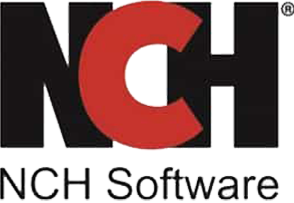
Pros
- Can reconcile bank and credit card accounts even when timing differences exist
- Is free for companies with one user and five or fewer employees
- Is easy to use considering it’s a traditional accounting program
Cons
- Won’t let you establish a live connection with your bank or credit card account
- Requires configuration of your firewall and router for remote access to your program
- Has no mobile app
- Comes with a steep learning curve for non-accountants
Scalability & plan upgrades | NCH Express Accounts is, by default, paid software. However, it has a free version for businesses with one user and five or fewer employees. If your business grows, you can continue to use the software but will need to purchase a license. The paid plans of NCH Express Accounts are as follows:
|
Add-ons pricing |
|
Discount | ✕ |
Free trial | ✕ |
Customer support channels | Email and self-help information |
Average User Review Rating | 3.91 out of 5. Read our NCH Express Accounts user reviews. |
If you find GnuCash too complicated, I’d suggest NCH Express Accounts as an easier-to-use desktop alternative because it’s free for businesses with five or fewer employees and includes features you’d typically find in paid solutions.
Its A/P, A/R, and bank reconciliation tools are particularly strong, and it integrates well with other NCH products, like Express Invoice Plus. That said, I’d only recommend it if you or your bookkeeper have some experience with accounting software. If ease of use is a priority, options like Wave or Zoho Books might be better, as they offer a more intuitive experience for those seeking the best free accounting software for small business.
Standout features
The best free features of NCH Express are as follows:
- Bank reconciliation: NCH Express Accounts, one of our best bank reconciliation software, provides a true reconciliation function that allows you to reconcile accounts even when there are outstanding checks or deposits in transit. This very basic feature is missing in many free options like Wave and ZipBooks.
- Intuitive workflow diagram: NCH Express Accounts provides a workflow diagram within each accounting function that helps users understand the accounting cycle within the area and shows them where they should enter transactions.
Use cases
- Small businesses with five or fewer employees: NCH Express Accounts is free for smaller businesses, offering essential accounting tools like A/P, A/R, and bank reconciliation without added costs.
- Businesses needing offline accounting: Since it’s a desktop application, it’s perfect if you prefer working offline or have limited internet access.
- Those who need integrated invoicing and accounting: It works seamlessly with other NCH products, like Express Invoice Plus, giving you an efficient way to manage both invoicing and accounting tasks.
NCH Express Accounts stands out for its A/R and banking features. You can create custom invoices, print and email them, and set up service items. For a free accounting software, I’m impressed by its invoicing capabilities. Its bank reconciliation is another strong point, especially since it can effectively handle timing differences.
That said, setting it up isn’t as straightforward as I’d like — it takes some time and effort. If you’re considering this platform, be prepared to dedicate time to the setup process. Another downside is the lack of integrations. If integrations with third-party tools are a priority for you, I’d recommend looking into Wave or Zoho Books instead.
Microsoft Excel is a helpful tool to supplement your free accounting software by providing some of the missing accounting functions. Read our guide on how to use Excel for accounting to learn how to track invoices, bills, COGS, and inventory costs. Plus, it offers a free downloadable template.
Zoho Invoice: Best for managing invoices

Pros
- Is totally free; no limitations or in-app purchases
- Is perfect for Zoho users
- Is easy to use for freelancers
Cons
- Won’t let you manage incoming invoices from suppliers
- Is not a full accounting system
Scalability & plan upgrades | Zoho Invoice is a standalone invoicing software that has all the invoicing features you’ll ever need. However, as your business grows, you’ll need a full bookkeeping system rather than just invoicing. To do this, you can integrate Zoho Invoice with Zoho Books for $20 to $275 per month, depending on the number of users and monthly invoices needed. Check out our review of Zoho Books for more information about the software. |
Add-ons pricing | ✕ |
Discount | ✕ |
Free trial | Zoho Invoice is completely free. |
Customer support channels | Phone, email, chatbot, live chat, and self-help library |
Average user review rating | 4.7 out of 5. Read our Zoho Invoice user reviews. |
Zoho Invoice is different from the other software on this list because it’s not bookkeeping software—it’s a full-featured invoicing tool. What I like about it is that it’s completely free for businesses of any size, with no ads or in-app purchases. This makes it a fantastic option for freelancers and gig workers like me who just need a simple way to manage and track invoices.
I’ve also noticed how well Zoho Invoice integrates with other Zoho apps, like Zoho Books and Zoho Inventory, which adds a lot of flexibility and productivity. Some of my favorite features include project billing, reporting, and the ability to customize templates to fit my needs.
Standout features
- Recurring invoices: This feature is often included in the paid or premium version of most accounting software. But with Zoho Invoice, you can get it for free. With this feature, you can skip making weekly, bimonthly, or monthly invoices for repeat customers.
- Built-in time tracker: Zoho Invoice has a timesheet that helps track time for billable projects. This feature is a big plus for freelancers who need to bill by the hour.
Use cases
- Businesses looking for a standalone invoicing solution: Zoho Invoice is totally free, making it a good pick if you’re looking to use a standalone invoicing software to manage software.
- Gig workers handling client invoices: It’s ideal for those who need a straightforward way to create, send, and track invoices without dealing with bookkeeping tasks or extra costs.
- Businesses needing project-specific billing: With features like billing by hours or milestones, it’s great for service providers working on project-based contracts.
Zoho Invoice is not evaluated in this rubric because it is not a double-entry accounting software. However, I included it here because it is a good pick for users looking for free software for making and sending invoices to clients.
How I evaluated free accounting software for small businesses
I evaluated the best free accounting software in terms of general features and whether they have the basic functions that I would like to see in free software, such as bank feeds and bank reconciliations. My scores are based only on the features provided in the free version of each platform.
I started with the 13 categories evaluated in our accounting software case study but then eliminated inventory and project accounting since I don’t expect free software to offer these advanced features. I also eliminated the value category, as all the software in this guide is free. The result was an evaluation based on the following 10 categories:
10% of Overall Score
I evaluated general features like the flexibility of the chart of accounts, the ability to add and restrict the rights of users, and how your information can be shared with an external bookkeeper.
15% of Overall Score
This assessed the ability to print checks, establish live bank feeds, and import bank transactions from a file. I also looked closely at the bank reconciliation feature. I wanted to see the ability to reconcile bank accounts with or without imported bank transactions and a list of book transactions that have not yet cleared the bank.
15% of Overall Score
In addition to the basics of issuing invoices and collecting customer payments, I evaluated the software’s ability to create customized invoices. I also assessed whether it could handle nonroutine transactions like short payments, credit memos, and refunding credit balances in customer accounts.
15% of Overall Score
The A/P score consisted of the basics like tracking unpaid bills, recording vendor credits, and short-paying invoices, but it also included some more advanced features—such as creating recurring expenses, and working with purchase orders. Receipt capture and the ability to automatically generate bills from captured receipts were also part of my A/P evaluation.
5% of Overall Score
Software should be able to track sales tax for multiple jurisdictions with varying tax rates. It’s helpful to have a function to easily record the remittance of the sales tax by jurisdiction. The very best tool will also help determine to which jurisdictions are sales taxable based on the address of the customer or delivery.
15% of Overall Score
I evaluated basic financial reports (such as a balance sheet, income statement, and general ledger) and common management reports (like A/R and A/P aging).
5% of Overall Score
Ideally, a mobile app should have all the same features as the computer platform, including the ability to capture receipts, send invoices, receive payments, enter and pay bills, and view reports.
5% of Overall Score
While it’s nice to have as many integrations as possible, I focused the evaluation on the three integrations I believe are most critical for small businesses: payroll, online payment collection, and time tracking.
10% of Overall Score
The largest component of usability is the ability to find bookkeeping assistance when users have questions. This could be in the form of a bookkeeping service directly from the software provider or from independent bookkeepers familiar with the program. Other components of usability include customer service and ease of use.
5% of Overall Score
The user review score is the average user review score reported by Capterra and G2. Other review sites might be used if a score from Capterra or G2 is unavailable.
How to choose free accounting software for your small business
Choosing the right free accounting software for small business is an important decision. Here are some key factors to consider:
- Your business needs: Identify essential accounting tasks like invoicing, expense tracking, financial reporting, and payroll to find the best free accounting software that meets your requirements.
- User-friendliness: Look for software that is intuitive and easy to use so you don’t waste time on complex accounting processes.
- Scalability: Select a solution that can grow with your business. As your accounting needs expand, having software that scales can be a significant advantage.
- Integration with other software: Check if the accounting software integrates with payment processors, e-commerce platforms, or CRM systems to streamline operations.
- Cloud-based vs desktop: Decide between a cloud-based or desktop solution. Cloud-based free accounting software for small businesses offers accessibility from anywhere, while desktop options provide more control over data.
- Customer support: Consider whether support is available via phone, chat, or email and if additional fees apply.
- Free version limitations: Be aware of any restrictions on users, transactions, or features in the best free accounting software for small business options. Ensure the free version meets your needs.
- Security and compliance: Make sure the software complies with data protection regulations and includes features like encryption and regular updates to protect sensitive information.
Frequently Asked Questions (FAQs)
If you’re a budget-conscious small business or freelancer and only need basic accounting features like income and expense tracking or invoicing, free accounting software for small business can be a great option. However, if you buy and sell goods, be aware that most free tools don’t include inventory tracking, meaning you’ll have to calculate COGS manually.
To find the best free accounting software, start by identifying the features you need. Do you require invoicing? Multi-user access? Project management tools? Compare providers based on ease of use, customer support, and user reviews to ensure the software meets your business needs.
Small businesses should look for essential features like income and expense tracking, invoicing, and reporting. A free mobile accounting app is also valuable for managing finances on the go. We recommend Zoho Books’ mobile app, which allows users to send invoices, record bills, accept payments, and track time worked — all from their phone.




